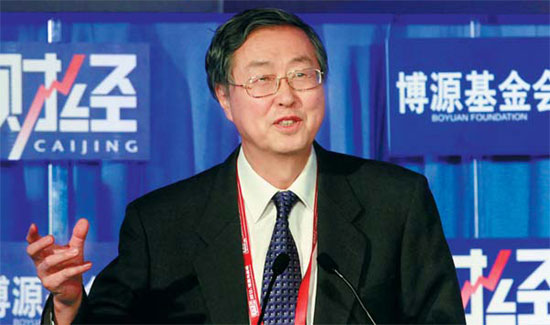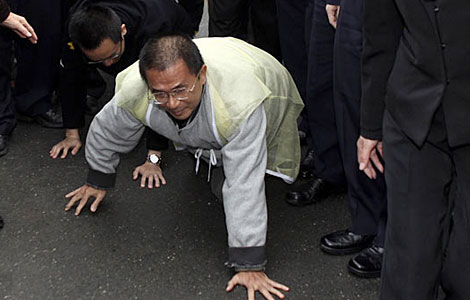Greater say needed on yuan's convertibility
Updated: 2012-01-07 09:10
By Wang Xiaotian (China Daily)
|
|||||||||||
BEIJING - China won't refuse to make its currency increasingly convertible under the capital account, but the country needs a greater voice in defining "full convertibility" globally, said Zhou Xiaochuan, the governor of the People's Bank of China (PBOC).
 |
|
Zhou Xiaochuan, the governor of the People's Bank of China, at a conference last December. [Photo/China Daily] |
"Because the International Monetary Fund (IMF) currently doesn't have specific standards on convertibility under the capital account, the definition of 'full convertibility' is discussable," said Zhou in an article published on Friday in the latest issue of China Finance Magazine, which is run by the PBOC.
Therefore, the standards should be more flexible and China should participate in formulating methods to measure a currency's convertibility under the IMF framework, he said.
Earlier this week Zhou said that the yuan will be freely convertible soon. "Now, we are not too far away from our goal of convertibility," he was quoted as saying by Caixin.com.
The official Chinese timeframe for the realization of full convertibility of the yuan is prior to the end of 2015.
Zhou added that currency convertibility doesn't mean giving up control of cross-border financial transactions, and said that it is reasonable to curb speculative capital flows when the international market registers unusual volatility.
"Convertibility should be based on the necessary management of the country's foreign debt. Yuan convertibility doesn't mean that anyone can borrow money in the global market freely."
In addition, China is not planning to develop any disputable financial derivatives products that may hurt the economy, and the country emphasizes that the free use of currency has a precondition that it must serve the "real economy", which produces goods and services, Zhou added.
In 1996, China made the yuan convertible for trade settlement, but hasn't allowed transactions of local financial assets into foreign assets at market exchange rates, fearing that such a move would stoke real estate and equity bubbles.
China will be able to liberalize the currency exchange rates in three years and full convertibility is a must if the country wishes to include the yuan in the IMF's Special Drawing Rights (SDR) currency basket as a reserve currency and float the yuan globally, said Huang Yiping, chief economist for emerging Asia at the investment banking division of Barclays Bank PLC, earlier at a forum.
He added that liberalization of the capital account does not mean there will be no limit for capital flows, and that short-term capital flows could be controlled through use of the regulations governing Qualified Foreign Institutional Investors and Qualified Domestic Institutional Investors.
"It is agreed that the renminbi is likely to become a candidate for inclusion in the SDR basket, but it needs to become more freely and widely used in international transactions," said John Lipsky, former acting managing director of the IMF.
Meanwhile, market indications that the yuan's exchange rate had started to move in both directions, instead of merely appreciating, would make the authorities more willing to loosen the brakes on the capital account and let the market decide the exchange rate at its own pace, said Lu Zhengwei, chief economist at Industrial Bank Co Ltd.
Hot Topics
Kim Jong-il, Mengniu, train crash probe, Vaclav Havel, New Year, coast guard death, Internet security, Mekong River, Strait of Hormuz, economic work conference
Editor's Picks

|

|

|

|

|

|







